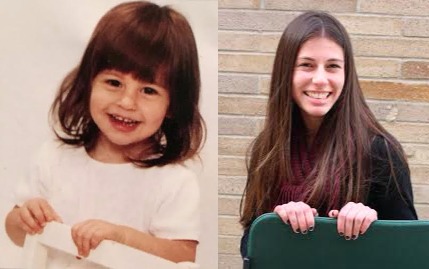Pet peeves with social media
Can Snapchatting really replace real chatting?
“OMG you are perfect.”
“Ugh. Get ugly.”
“Share some of your beauty with the rest of us. You’re honestly perfection.”
“Thanks, but I am really not pretty.”
These are just some of the typical comments I see as I scroll down my Instagram news feed. In a world where technology is used to make communication more accessible and efficient, it also dominates various aspects of people’s everyday lives, especially social media.
According to dailytech.com, 81 percent of teens use social media sites. That is a pretty large number. This is direct evidence of how prevalent it is in society—and how common it has become.
Something that really stands out to me when I go on social media is the question of why people feel the need to document the majority of their life. I have heard the following way too many times: “pics or it didn’t happen” or “if you went to [x] and did not Instagram it, did you really go?” While I know these are just popular phrases in relation to social media, just think about it. No one really knows what you are doing unless you post something online. Quite telling. In reality, it is “pics or not everyone knows what I did.”
Another social media eye-opener I continuously witness is the never-ending Snapchat Story. Many of us have seen this or are even guilty of doing it. Perhaps one wants to post a picture or video to their Story. There is nothing wrong with that. However, when the Snapchat Story becomes over 102 seconds long, the only word that pops into my head is “why?” In fact, isn’t it a bit strange to know what everyone is doing throughout his or her day? Why does one feel as though they are obligated to apprise others of what is going on every hour of their life? In a sense, it is giving others direct consent to invade your life.
I think one of the reasons people feel the need to post on social media is to gain praise or flattery. Social media serves as a platform for compliment fishing.
After talking to a multitude of Pascack Valley students, I have formed a consensus about one of the most common social media pet peeves. In particular, I, along with countless others, find a lot of people posting selfies on Instagram and collecting a surplus of compliments as time progresses. However, it is not the picture that irritates people—it is the comments that are attached. Instead of simply thanking those who comment on their photos, many reply back by saying “I’m really not pretty” or “Look at you” or “I wish I was you” or “Ew, no I’m not.”
No one posts pictures they sincerely believe they look bad in. Think about it. Realistically, who looks at a picture of themself and thinks, “I look gross in this. Let me post this online?” It just does not happen. These comments appear to be some sort of humility attempt to seem modest or even unpretentious because, as we all know, no one wants to be labeled as conceited. In a sense, people are making their comments on their own pictures some form of an effort to appear self-deprecating.
An aspect of social media I find to be very prominent today is how it isolates people from society. How many times have you ever been in the middle of a conversation with someone and as you are talking, they stop to check their phone? This goes to show how technology is very consuming, as well as distracting. It can prevent people from living in the moment or being spontaneous. Not only that, but instead of addressing people face-to-face, it is said over technology, like Facebook and Twitter. PV Junior, Maggie Capone, explained, “When people subtweet, that really annoys me. You know they are mad at someone, but is it me? It’s annoying and people should not take their frustration out where everyone can see it.”
Social media, in a sense, is like an alternate universe. People have the opportunity to portray themselves in a way that they might not actually be like in reality.
While the concept behind likes is to simply double tap one’s touch screen device if they think the picture is aesthetically pleasing, some take it to a personal level, despite the fact that likes do not necessarily equate to someone genuinely liking you. The basic double tap of a screen fills up people’s heads quickly and shows just how powerful the need for social recognition truly is.
Please note that I am not saying that social media is bad. I have social media accounts and I do not think that it is all vain and foolish. In fact, social media does serve people well, whether it be promoting businesses, shining a spotlight on important issues that need to be addressed, getting the word out on various matters, etc. I simply believe that it is how people handle themselves on social media that needs to be a bit more thought out. While some may think their incessant posting does not bother people, it just might. While some may think their words have no impact, they just might.
Social media is not reaching a sudden halt any time soon. While some sites are more popular than others, one thing is for sure. People love to post.
(Brianna Ruback’s opinions are not necessarily those of The Smoke Signal or its staff.)














Matt Morone • Dec 15, 2014 at 2:58 pm
“No one posts pictures they sincerely believe they look bad in. Think about it. Realistically, who looks at a picture of themself and thinks, “I look gross in this. Let me post this online?” It just does not happen. These comments appear to be some sort of humility attempt to seem modest or even unpretentious because, as we all know, no one wants to be labeled as conceited. In a sense, people are making their comments on their own pictures some form of an effort to appear self-deprecating.”
Spot on observation, Brianna. We see this sort of false modesty invading all aspects of society and media today. Ultimately, this behavior is simply thinly-veiled egotism. I’m glad you pulled back the curtain to reveal the truth.
Powerful and thought-provoking article.